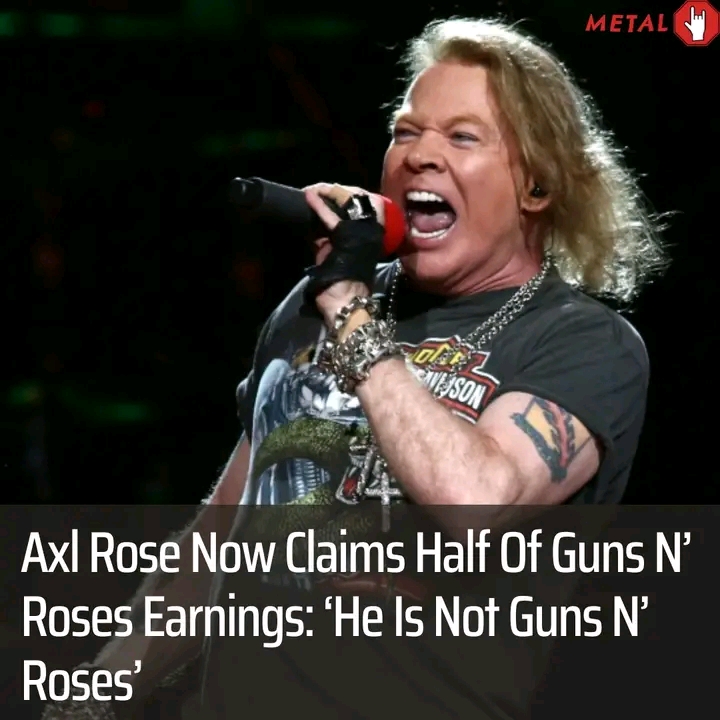Axl Rose Now Claims Half Of Guns N’ Roses Earnings: ‘He Is Not Guns N’ Roses’
Axl Rose, the iconic frontman of Guns N’ Roses, has recently made headlines with his claims regarding the band’s earnings and his position within the group. In a revealing interview, Rose expressed his perspective on the financial dynamics that have evolved since the group’s inception and the current state of its legacy.
Rose asserted that he deserves half of the band’s earnings, a statement that raises questions about the distribution of wealth among band members. He emphasized that while Guns N’ Roses has enjoyed tremendous success over the years, the spirit and creativity of the band should be recognized not just in concert revenue and album sales, but in the collaborative effort that has fueled its enduring appeal.
The roots of the dispute lie in the historical tensions within the band, particularly between Rose and the other original members. While Guns N’ Roses was initially formed in the mid-1980s, the lineup has changed significantly over the decades, leading to differing views on ownership and contribution. Rose’s claims underscore a deeper conversation about what it means to be part of a legendary rock band, questioning whether individual members or the collective group should claim the lion’s share of the profits.
In his comments, Rose also touched on the notion that “he is not Guns N’ Roses,” suggesting that despite his central role, the essence of the band encompasses more than just his contributions. This statement reflects an ongoing dialogue in the music industry about artistic ownership and the value of creative input from all band members.
The claims are likely to reignite discussions among fans and music industry analysts about the financial obligations and agreements that come with being in a band, especially one as celebrated as Guns N’ Roses. Moreover, the implications of Rose’s statements could affect future tours, album releases, and the band’s overall branding.
As Guns N’ Roses continues to tour internationally, the complexities of their internal relationships and financial agreements remain a crucial factor influencing their direction. Rose’s declaration serves as a reminder that even legendary bands face challenges in navigating the balance between artistic collaboration and financial remuneration. The debate on who truly owns the brand of Guns N’ Roses is emblematic of larger issues in the music business, where the blending of individual artistry and collective identity can often lead to friction.














Post Comment